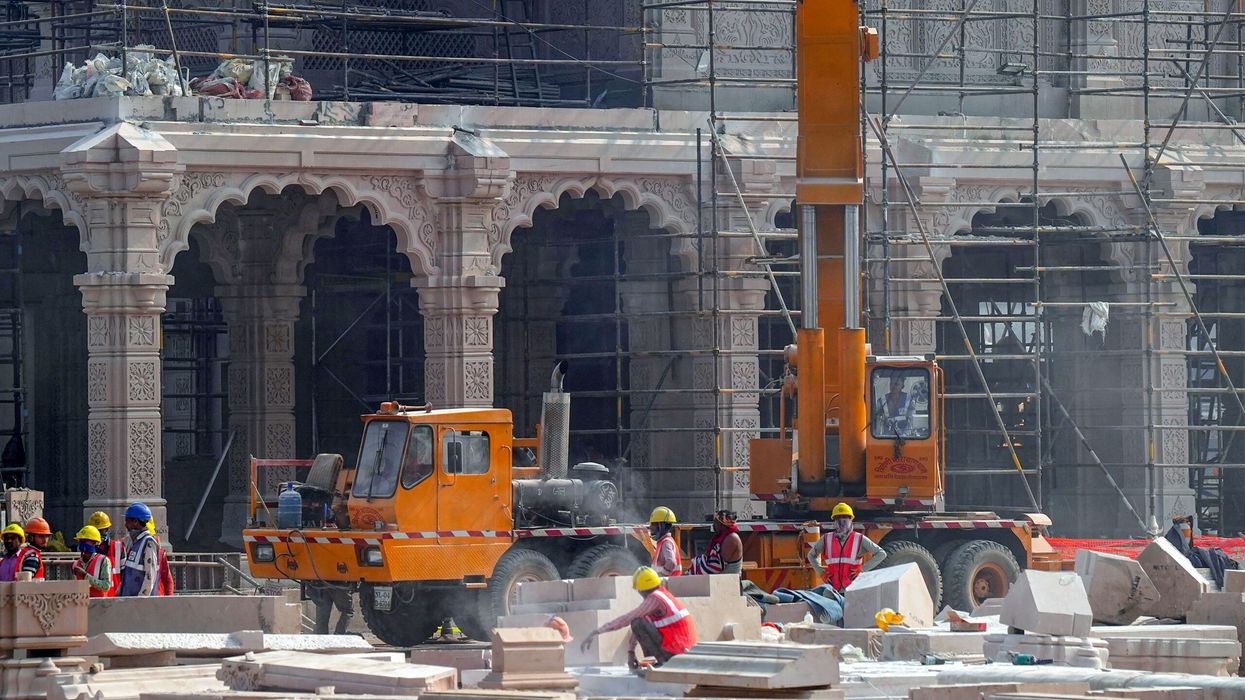Temples in the US are preparing week-long celebrations in North America to honour the inauguration of the Ram Mandir in Ayodhya on January 22, 2024, a top official representing these temples has announced.
“It's our fortune and blessings to us that we are part of this phenomenon and the temple of our dreams is getting materialised after centuries of wait and struggle. Everyone's emotions in the US and Canada are very high. Shraddha (devotion) is built up and everyone is eagerly waiting to receive Bhagwan Shri Ram in his mandir,” Tejal Shah from the Hindu Mandirs Empowerment Council (HMEC) said on Monday (25).
Hindu Mandirs Empowerment Council (HMEC) is the apex body of more than 1,100 Hindu Temples in the United States.
The week-long celebrations across small and big temples in North America, she said, will kick off on January 15 and culminate in the live telecast of the Ram Temple inauguration from Ayodhya, she said.
The Ram Temple will be inaugurated on January 22.
Given the response so far, they expect thousands of Hindus to watch the inauguration ceremony, said Shah who has been heading the Hindu Mandirs Empowerment Council (HMEC).
"At the end of the event we will take a Sankalpa,” she said. “For us, it will be the 21st of January night 11 pm Eastern time. So, we will all join virtually on that night to celebrate Bhagwan Shree Ram's pran pratishta,” she said.
So far, several dozen temples have signed up for the curtain raiser event on January 15 for the Shri Ram Naam Sankirtan chanting by priests across North America. More than half of the temples have signed up for the main events on January 21-22, she said.
“Every week we see 100 plus mandirs registering for the events,” she added.
The January 15 event, she said, would begin with the chanting of Ram Nam Sankirtan by priests. Ram Nam Sankirtan is the chanting of 108 names of Lord Rama used in Valmiki Ramayana.
It will be followed by Bhajan recitation by renowned artist Vinod Krushnan from Atlanta who will be singing some popular new Bhajan of Lord Rama, she said.
On January 21, plans are afoot to lighten up the temples, live watching of the inauguration at these temples, and blowing of conch shells and distribution of prasadams.
Every participating temple will receive a certificate of participation and “Prasad” from Shree Ram Janam Bhumi Teerth Kshetra Trust, Shah said.
“We have created an exhibit “Ramayana Around the World” in commemoration of Pran Pratistha and the inauguration of the mandir at Shree Ram Janmaboomi in Ayodhya.
"This 26-poster exhibit shows the importance of Shree Ram and Ramayana in countries around the world,” she said, adding that the exhibit is available for display at the mandirs and local community centres.
(PTI)












